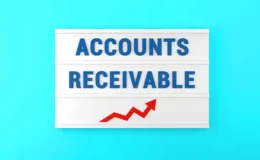As a business owner, it’s important to have a private life. You give your time and energy to your business, but you also want to have time for yourself and your family. It’s also smart to keep your personal finances and business finances as separate as possible. Does one ever affect the other? Can your personal credit score hurt your business credit?
Why Separating Your Finances Is Important
Before getting into the link between business and personal credit, you need to understand why having separate finances is vital as a business owner. There are many areas of commerce where you can avoid potential headaches if you have good accounting practices.
First, keeping your expenses separated can help you avoid mistakes at tax time. Of course, if you’re a sole proprietor, you still have to pay taxes on the income from your business, but you have an easier time calculating deductions this way.
If your small business is structured as a corporation or LLC, keeping your expenses separated is key to avoiding liability. For example, if one of your employees damages a client’s home, you don’t want to expose your personal assets to liability for damages. Maintaining separate accounting practices shows that your business is a separate entity financially.
How Personal Credit Affects Business Credit for Loan Applications
Regardless of how your business is structured, applying for business loans generally requires running a hard pull on your personal credit rating. This is especially true for sole proprietors. This means that your personal credit score becomes an important factor in determining if your business should qualify for the loan.
Additionally, if you’re a new entrepreneur, lenders may want you to provide a personal guarantee. This essentially links your personal assets to your business. Many of today’s startups actively try to avoid personal guarantees to limit personal liability.
After many years in business, things can change. Once your business has started to build up a good credit reputation of its own, your personal credit becomes less important. Still, there’s a good chance that for major loan applications, lenders may still pull your personal credit score when weighing approval.
Why Business Credit Affects Your Personal Credit
The opposite is also true. When you manage your business’s finances well, such as paying invoices on time and avoiding excess credit card balances, it can reflect positively on your personal credit. This gives you the incentive to protect both credit ratings.





